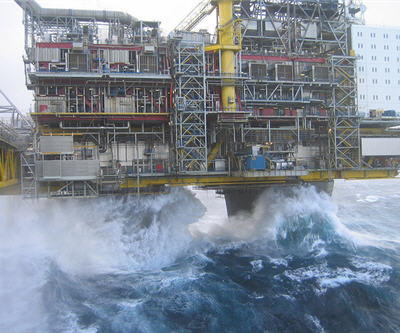Reaction to the Nexen deal, China’s largest ever overseas acquisition

On Friday Ottawa green-lighted the takeover of Nexen, an Alberta petroleum producer, by China’s CNOOC for $15.1 billion, making it China’s largest ever overseas acquisition.
The Harper government has also given the thumbs up to the Progress Energy Resources deal, which would see Malaysian national energy company Petronas buy the company for $6 billion.
During the announcement, Harper said there will be limits to the government’s willingness to let future deals proceed when the transactions are conducted by foreign state-owned entities and will only proceed in “exceptional circumstances”.
The BC government lauded the deal.
Resources minister Rich Coleman said the deal is a “real sea change for British Columbia” and will allow an LNG plant to proceed at Prince Rupert, according to a report by the Canadian Press. The opposition NDP said they are also happy to see an LNG plant proceed at Prince Rupert, but would’ve liked more work on greenhouse gas implications.
The federal NDP called the deal irresponsible. Resource critic Peter Julian, in an interview with CBC’s The House, said the public should be more widely consulted and the government should more clearly define the net benefit of the deal.
Andrew Coyne writing for the Ottawa Citizen, is happy about the deal but says there is no clarity about overseas investment.
So: the right decision this time, but the promise of endless wrong decisions in future. By accepting CNOOC’s bid for Nexen (and, at the same time, Petronas’s smaller bid for Progress Energy), while all but slamming the door to other foreign state-owned firms with acquisitive ambitions in this country, the prime minister has probably struck the right balance, politically. He has done so, however, at the cost of total incoherence in policy terms.
Certainly he has done nothing to clarify Canada’s famously murky approach to foreign takeovers. Indeed, he has taken a policy that was already restrictive by international standards, and tightened it further. Where before our foreign investment rules were merely opaque, they are now both complex and opaque.
Jim Stanford, economist with the Canadian Auto Workers union, says Canada doesn’t need the money.
The only thing these foreign investors bring to the table is money – and we’ve got plenty of that. Our real national capacity to produce isn’t enhanced by these transactions, and may actually be undermined (given the risks posed by foreign control over a strategic, non-renewable resource).
In short, there’s no real economic sense in which Canada truly needs foreign capital (whether physical, human or financial) to develop our own natural resources. We’re quite capable of doing it ourselves, thank you – and we’d be much better off if we did it that way.
Weirdly, Andrew Nikiforuk at The Tyee says the whole oil thing is coming to an end anyway, and Harper decided to lock in a price for an over-valued asset:
Economic desperation, for one, also explains why the prime minister has seemingly abandoned his own conscience on China. Several years ago Harper criticized China’s human rights record and its totalitarianism. He even refused to attend the Beijing Olympics.
But with bitumen’s fortunes falling faster than the NHL’s prospects, Harper now proposes to sell the whole Canadian bitumen farm to Chinese state-owned corporations. Why? Well, they have enough almighty yuan to keep the overheated engine going.
Harper’s singular desperation has thoroughly infected every government department. The country’s new foreign policy document, drafted by Foreign Affairs Department, a new branch plant for Big Oil, not only calls for more trade with China (which consumes half the world’s coal and one-fifth of its oil), but the abandonment of ethics at home or abroad in the name of the almighty dollar.
On the other end of the spectrum, the Canadian Council of Chief Executives thought the sale was a grand idea.
MacLean’s has a nice chart to remind us that most of Nexen’s assets are overseas.
Picture of North Sea oil rig by Tuftronic10000
{{ commodity.name }}
{{ post.title }}
{{ post.date }}




Comments